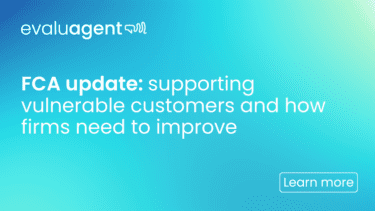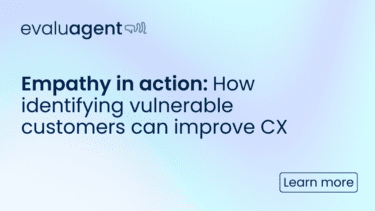As the customer experience continues to emerge as the key service differentiator for businesses, employee empowerment is becoming a common theme in many boardroom and management conversations. Empowering staff is a concept that can be defined in many ways, but it typically refers to giving employees a certain degree of autonomy and responsibility for decision-making regarding their specific tasks.
Empowered employees are committed, loyal and conscientious. They are eager to share ideas and serve as strong ambassadors for their company and brand. But what does does empowerment mean for agents in the call centre?
Anarchy in the call centre?
The idea of giving staff autonomy over the way they interact with customers can strike terror into the hearts of call centre operations managers. In reality, agents and staff members at the lower levels of the call centre have a unique and deep understanding of the issues and problems facing the business.
When you empower these agents with a certain amount of freedom to do what they think is necessary to resolve customer issues, it creates a powerful shift in their focus. Their objective becomes less about closing down a call and moving onto the next, and more about owning the customer’s problem, and finding a solution.
Empowerment doesn’t just come from autonomy and control, but knowledge and best practice. In order to create a truly effective, engaged and empowered agent, they must understand what is expected from them, and exactly which elements of their role are most important.
Getting the balance right.
For example, a typical agent measured primarily around Average Handling Time might be asked, ‘What is the most important thing for you to do on each call?. They might reply with something like, ‘to resolve the customer’s problem as soon as possible.’ This might sound about right, but in many cases the focus is more on the ‘as soon as possible’ and ‘resolving the customer’s problem’ can have very different definitions for different people.
Everything is about balance. If you’re focussing solely on AHT to define and measure performance, agents have no incentive to understand and resolve customer issues. Bringing FCR into the mix of metrics will mean agent AHT will rise slightly, but you’ll experience an improvement for the relatively easy customer issues. Balance the way you monitor and coach by introducing empowerment, whilst monitoring AHT and FCR within broader tolerance, you’ll find that customer and employee satisfaction rises greatly. Movement or increases on the other metrics will happen but because agents are taking on a slightly wider scope of interaction that delivers things much more beneficial to your business than a low AHT.
In many cases, the customer can issue disappears for the agent as soon as that call ends. This leads to efforts to shut down calls as soon as possible with little consideration regarding the customer experience, and consequences like repeat contacts.
An empowered agent is equipped with the knowledge that it important for them to provide a quality service, truly resolving the customer’s problem the first time, and as efficiently as possible.
Motivate with call centre agent empowerment.
Through allowing agents to operate in a way that encourages them to think about their role from the perspective of business efficiency and customer experience, they are able to see the full impact of their performance. Having validation from not only your manager, but the customer also adds another layer of engagement and satisfaction to the job – meaning agents are motivated to improve their performance.
An extremely valuable element of work in the call centre that many agents miss is the opportunity to understand the importance of the experience they deliver, what makes customers love the brand, and exactly how they contribute to the success of the company.
To enable this approach amongst your staff, it’s vital to coach and train individuals not just linked to what they have done, but precisely how they went about it. Engaged and empowered staff are coached on how to truly resolve a customer issue, and what they can do to achieve that.
An engaged workforce is a workforce that is guided but not bound by processes in the call centre. Empowerment doesn’t mean anarchy, quite the contrary, empowered staff know the boundaries, rules and what is expected of them inside out – but can exercise autonomy, creativity and common sense to create happy customers within those parameters.
What are the risks?
Empowerment does come with a degree of risk. When not managed properly, decisions may not in line with the goals of the organisation, as some decisions are decentralized and not managed at the top. At the same time, manager and agent relationships can become difficult as boundaries of authority blur. This is exactly why empowerment has to come with the tools to support the approach.
When done correctly, empowerment liberates staff to focus upon how they behave, and gives them the freedom to align themselves with your goals, and strive to deliver an ever increasingly efficient customer-focussed experience.




